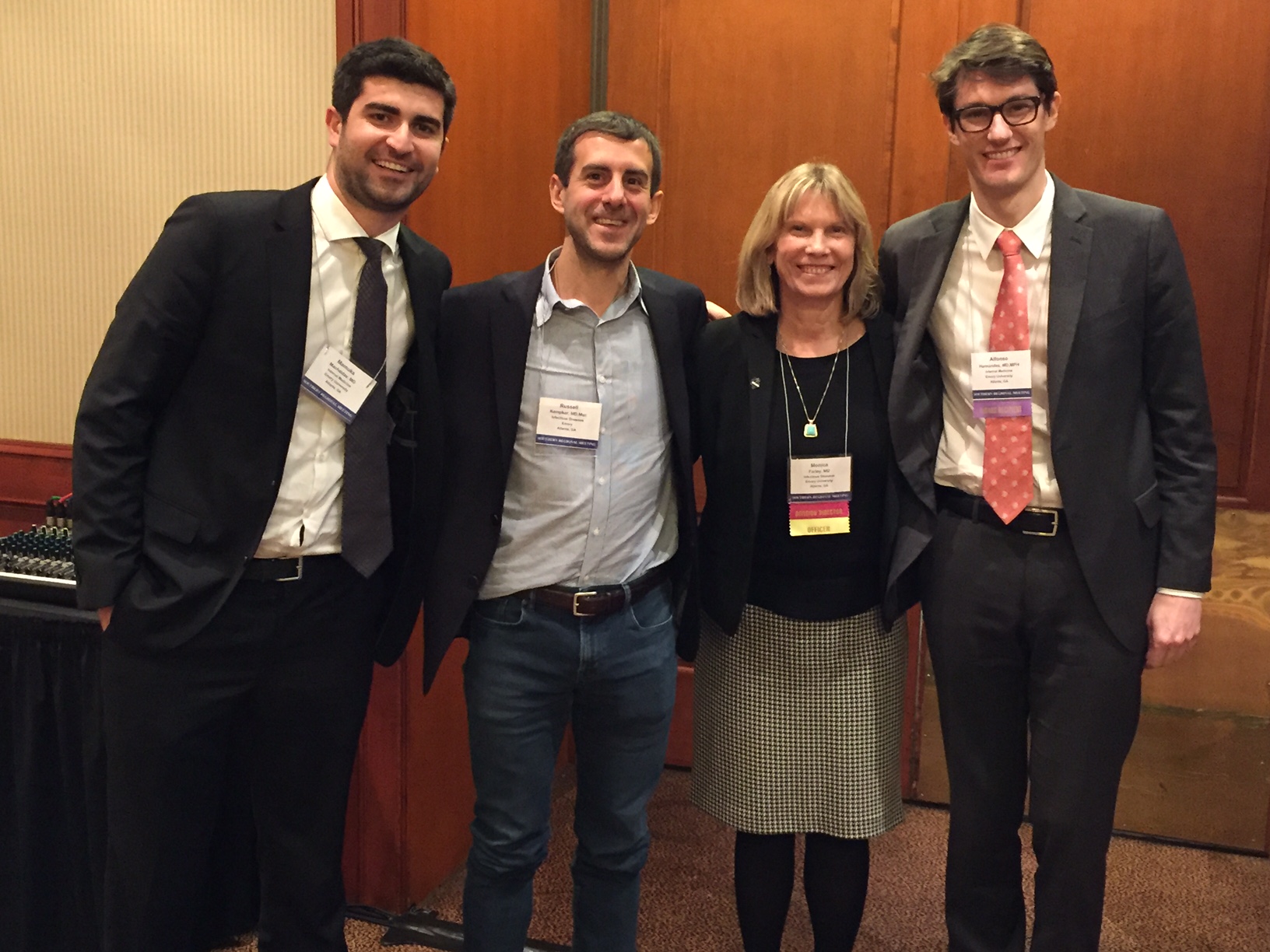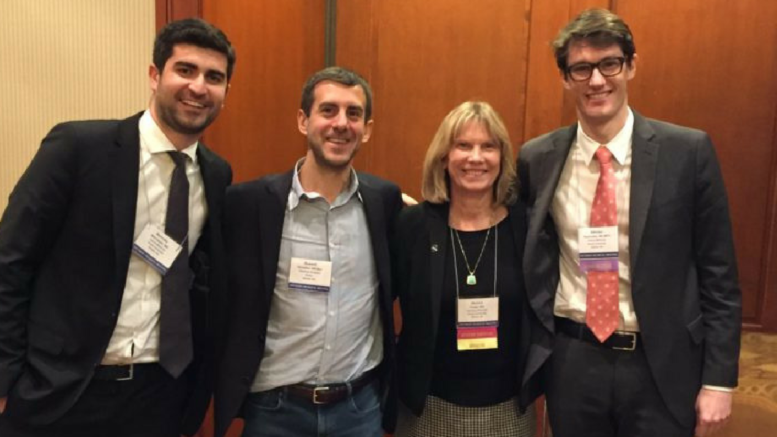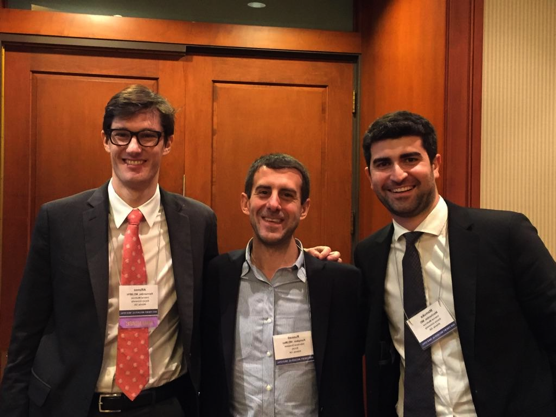
Left to right: Drs. Mamuka Machaidze (Emory IM resident), Russell Kempker (Emory Infectious Diseases faculty mentor), Monica Farley (Division Director, Emory Infectious Diseases), and Alfonso Hernandez (Emory IM resident) at the 2017 AFMR Southern Regional meeting in New Orleans
Several Emory Department of Medicine faculty, fellows, and residents attended and presented research projects at the American Federation for Medical Research’s (AFMR) annual Southern Regional meeting, which was held February 11-13, 2017 in New Orleans.
Alfonso Hernandez, MD, a resident in the J. Willis Hurst Internal Medicine Residency Program, presented “Chest computed tomography characteristics and time to culture conversion among patients with pulmonary tuberculosis.” In a retrospective cohort study of 247 patients with culture-confirmed pulmonary tuberculosis at Grady Memorial Hospital from 2008-2015, Alfonso’s team studied the frequency of chest CT, the performance of chest CTs in detecting abnormalities and cavitary lesions compared to chest X-rays, and whether the presence of cavitary lesions on chest CTs were associated with a longer time for sputum culture conversion.
“We used McNermar’s test and Cox Proportional Hazards models,” Alfonso said. “72% (178/247) of patients in our cohort had a chest CT performed, of which 47% had one or more cavitary lesions. Among 139 patients with a non-cavitary X-ray, chest-CT-identified cavities in 48 or 35% (p<0.0001). Chest CT also identified cavities in 10 patients with HIV infection and five patients with a negative sputum smear, but the results were not statistically significant and were limited by the small number of patients. In multivariable models, the adjusted hazard ratio comparing cavitary to non-cavitary chest CT was 0.65 (CI 0.43-0.99), indicating that at any point in time, patients with a cavitary lesion on CT were 35% less likely to achieve culture conversion relative to patients with a non-cavitary CT.”
“While conducting the literature review for this study, I realized there is little data regarding chest CT characteristics and their relation to treatment outcomes,” Alfonso said. “We are currently working with two Emory radiologists to describe the chest imaging in our study in more detail, with the goal of developing a chest CT prediction score of pulmonary TB severity to guide choice and length of treatment.”
After completing his residency training, Alfonso hopes either to pursue an infectious diseases fellowship or to enter the Epidemic Intelligence Service fellowship at the Centers for Disease Control and Prevention (CDC).
Related Links
- Emory University Department of Medicine
- J. Willis Hurst Internal Medicine Residency Program
- American Federation for Medical Research (AFMR) – Southern Region
- Emory University Division of Infectious Diseases
- Monica Farley’s faculty bio
- Russell Kempker’s faculty bio
- Emory Antibiotic Resistant Center
- Centers for Disease Control and Prevention (CDC)
If you are interested in investing in research, clinical care, and/or education within the Emory University J. Willis Hurst Internal Medicine Residency Program, please visit our website to learn how you can help.



Be the first to comment on "Emory researchers present at AFMR Southern Regional meeting"